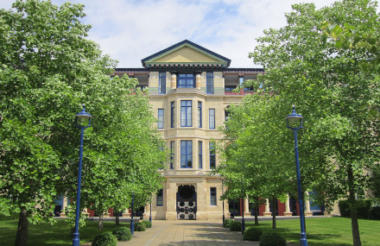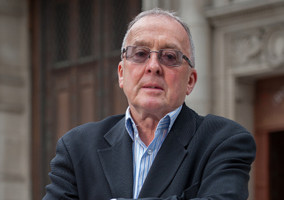A new Centre for Strategic Philanthropy has been established at the University of Cambridge Judge Business School.
It will examine and work to enhance the impact of strategic philanthropy both within and from some of the world’s fastest-growing regions, including Africa, developing Asia, and the Middle East.
The Centre will work with relevant institutions and practitioners in these regions in order to encourage collaboration and the sharing of knowledge and insights.
The Centre’s first research project, expected to be completed in autumn 2020, will examine how philanthropists in high-growth markets are changing their priorities and practices in response to the Covid-19 pandemic.
The UN has said there is an existing annual funding gap of $2.5tn to meet the Sustainable Development Goals by 2030, with Covid-19 straining funding significantly further. Emerging market philanthropy is expected to play an increasingly important role in bridging these gaps.
'Transparency, technology and evolving attitudes toward wealth are reshaping donors' approaches'
Badr Jafar, founding patron of the Centre for Strategic Philanthropy, said: “Today, well over a trillion dollars of private philanthropic capital, more than triple the annual global development and humanitarian aid budgets combined, is deployed every single year.
“The evidence is also overwhelming that the world’s emerging economies are becoming an increasingly powerful source of philanthropic capital and social innovation. With the impending generational transition taking place around the world, it is crucial to properly understand the diverse approaches to philanthropy that exist in these markets, and the local and regional factors that have shaped them.
“Transparency, technology and evolving attitudes toward wealth are reshaping donors' approaches to giving worldwide. We will likely fail to address the myriad of challenges on the global agenda over the next decade without making a much greater effort to connect, exchange ideas and partner with strategic philanthropists from the world’s fastest growing regions.”
The activities of the new Centre for Strategic Philanthropy will span three key areas. These will include undertaking research, education and training, and convening diverse voices to discuss optimal models and practices in philanthropy.
The Centre will also hold an annual philanthropy summit to showcase new approaches in philanthropy and host international policy roundtables in cities across high-growth markets.
Dr Kamal Munir, the Centre’s academic director, said: “The Centre will aim to bridge the gap between academics and practitioners in philanthropy. We hope to be able to offset the significant dearth of research in this field and help improve the transformational impact that philanthropy can achieve, when at its most creative.”
Last year former ACEVO boss, Sir Stephen Bubb, announced plans to build an Oxford Institute of Charity (OIC) after three years of discussions with the university. The Institute is now housed at New College Oxford.
Lombard Odier and WWF launch donor’s guide to the environment
Meanwhile, Lombard Odier, a leading global wealth and asset manager, and WWF International have launched a partnership to protect the environment and fight climate change.
They have published A Donor’s Guide to the Environment, which is intended as a resource for any philanthropist wanting to protect the environment and help fight climate change.
It provides information and analysis to better understand the scope of the nature and climate emergency we are facing, and identifies different types of solutions.
Marco Lambertini, director general of WWF International, said: “One million species are threatened with extinction, and the way we currently produce and consume is causing irreparable damage to biodiversity, land, forests, oceans and river systems. The science is clear: the loss of nature together with climate change is a global emergency putting our economic prosperity, wellbeing, development and very survival at risk.
“Despite awareness being higher than ever before and increasing engagement by philanthropists around the globe, faster progress is needed, along with the commensurate financing, to rebalance our relationship with nature.
“Philanthropy can help today and more than ever before in financing actions that target the root causes of nature loss and climate change and mobilise decision makers in driving the much needed systemic change for a sustainable future for people and planet.”
Related articles












